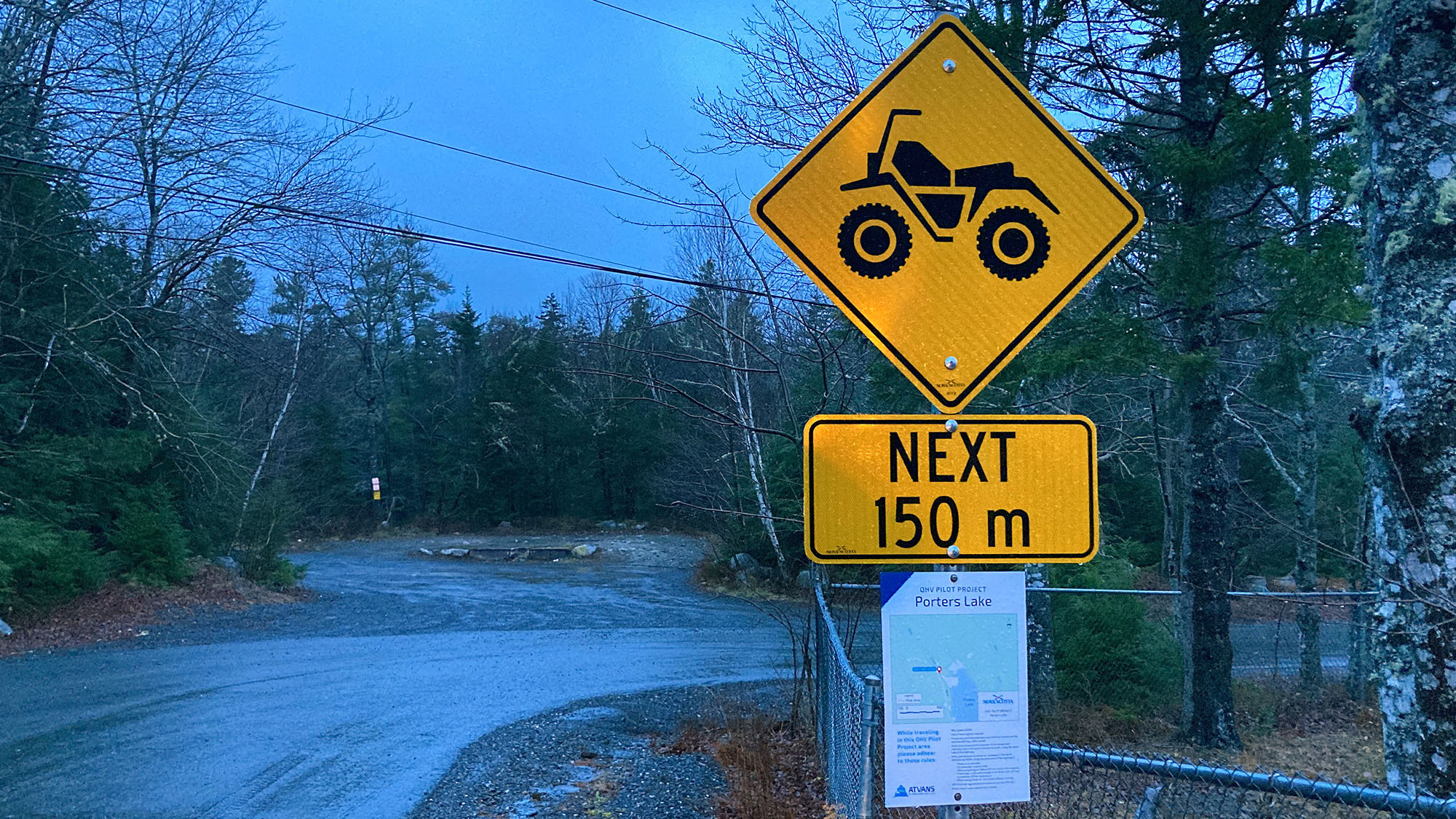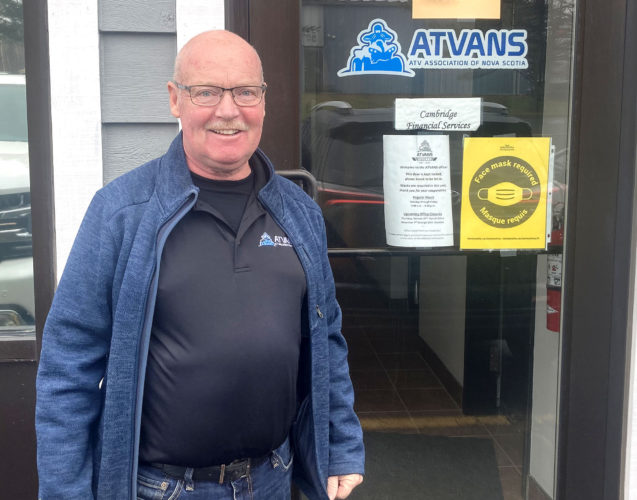Government report recommends ATVs use more Nova Scotia roads
Association says road use pilot project a success

caption
A sign marks the beginning of the Porters Lake Off-Highway Vehicle Pilot Project route on Myra Road. While the Porters Lake route is short and connects nearby trails, others across the province extend for more than five kilometres.A report recommending more ATV access to roads is the “biggest positive step forward in our history of 26 years,” said the executive director of an organization for all-terrain vehicles.
Barry Barnet of the All-Terrain Vehicle Association of Nova Scotia (ATVANS) said on Wednesday that he was happy with the findings of a consultant’s report commissioned by the government, which evaluated the province’s Off-Highway Vehicle Pilot Project.
The report, released on Nov. 28, suggested more routes should be added across Nova Scotia to help ATVs access trails or local businesses.
The pilot, running since 2018, allows four-wheeled ATVs to access select public roads to reach certain destinations. ATVs are referred to as off-highway vehicles — or OHVs — in the report.
Barnet said with more opportunities for ATVs to use roadways, it will be easier for riders to get around.
“For riders in Nova Scotia, it’s going to create a level of connectivity that we’ve never had,” Barnet said.

caption
Barry Barnet, executive director of the All-Terrain Vehicle Association of Nova Scotia, said more road access points will “create a level of connecvtivity that we’ve never had” for ATVs.The pilot project’s routes are made up of 14 kilometres of road in seven different places, including two sites in Halifax Regional Municipality. The pilot was scheduled to run for three years but was extended for another two in October 2021.
Pilot routes range from a few hundred metres to five kilometres in length, where ATVs must drive on the road’s shoulder where possible. Driving on roads outside of the set routes is illegal.
Positive feedback from communities, stakeholders
The consultant’s report said feedback from riders, business owners and community members near the routes was positive.
Deborah Bayer, a spokesperson for the province’s Department of Public Works, said in an email that stakeholders supported making the pilot permanent and adding new routes. That includes businesses, who “reported benefiting” from ATV access.
Marilyn Wutzke works at the Walton Pub & Eatery in Walton, a community an hour outside of Halifax on the Minas Basin. One of the seven pilot routes is in Walton, passing by the restaurant.
Most of the restaurant’s business, Wutzke said, is from ATV riders. But even though it’s always been popular with riders in the area, business from them has improved since the pilot was implemented.
“They support the community and they have everything here they need,” Wutzke said. A store also operates next to the restaurant, where riders stop for gas and other supplies.
Riders have been crucial for keeping the business going, Wutzke said, as business “has been slow” through the COVID-19 pandemic.
“We need them now. We look forward to the weekends.”
Next steps
Bayer didn’t say whether the province had approved the report’s recommendations, or how long it might take.
For new routes to be added, Bayer said, a location must meet certain criteria, including:
- Easy access along the road to nearby trails and/or amenities.
- Low traffic volumes on the road.
- Access to the road’s shoulder.
- A speed limit of 80 km/h or less on the road.
- Good sight-lines for oncoming traffic.
Barnet said ATVANS applied for 39 more routes to be implemented across the province. Should they be approved, he said riders would be able to travel almost across the province with little time spent on public roads.
Barnet is hopeful it’s just a matter of time until road connections to trails and businesses are common across the province.
“The report speaks for itself. There are virtually no negative consequences,” Barnet said. “It was completely unsurprising for us.”
About the author
Luke Dyment
Luke Dyment is a Halifax-based reporter from Prince Edward Island. He has written for the Globe and Mail, The Signal and the Dalhousie Gazette....

R
RAY NELSON
K
Ken
A
Allan Buteau
K
Kelly Deveau